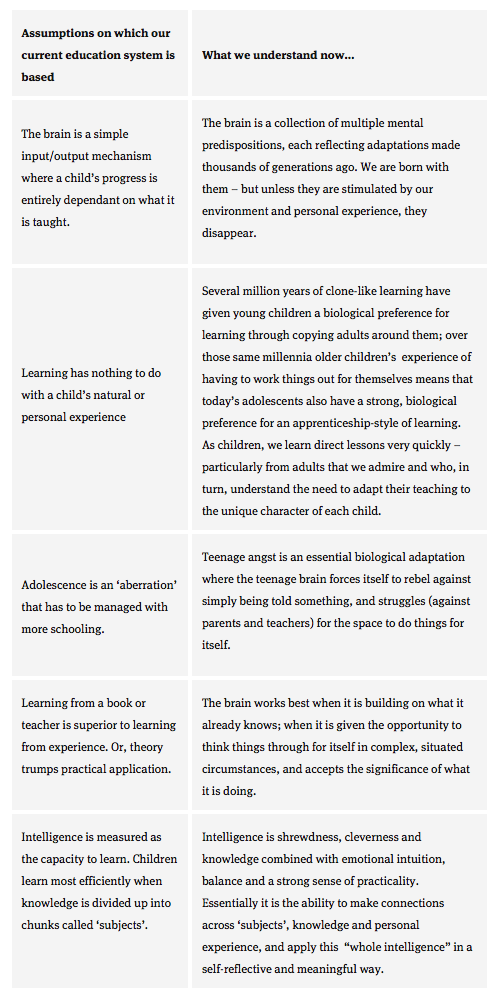What makes a great administrator?
I started this post a while back, as a bit of a rant in response to something that was going on at school. I am no longer in full-on rant mode but thought I’d finally post this anyway…
Full disclosure: I have worked in 4 different schools and never been a full-tme administrator. I have held an administrative role (Curriculum Co-ordinator) and non-teaching roles (Admissions Counsellor) but have spent the majority of my career as a teacher (both classroom and specialist).
I currently work in a pretty amazing school: there is a real sense of collegiality between teachers, parents are supportive, students are keen and we have no lack of material resources. We have much freedom with our curriculum and we are not constrained by frequent standardized testing. Still, there has recently been a noticeable shift in morale when it comes to how teachers view the administrators.
En route to school a few weeks ago I wondered why there had been so much recent grumbling about our administrators. Coincidentally, when I arrived at school that morning someone else asked me how I would define a “world-class administrator” and that got me thinking…
Much has recently been in the media about evaluating teacher performance. In fact a whole edition of Educational Leadership recently focused on this topic. Perhaps I am looking in the wrong places, but I have seen relatively little written about evaluating administrator performance.
So, I’m putting it out there… What makes a great administrator?
I see that on Connected Principals they have grappled with this in the Principal Quality Standard…
What we know about teaching and learning has changed tremendously in the last “few” years. Yet, in the 17 years since I began teaching, I have seen very little change in how schools function as institutions. To me, it feels as though we are trying to apply our “21st century learning” models in an industrial age building with an industrial-age structure.
By way of example, I would say that, on average, my colleagues receive about 30 emails a day from students, parents and colleagues. Compared to the business world, this is very little, but compared to the age of handwritten notes and the odd phone call, when are teachers supposed to deal with these? During their supposed “prep time” rather than planning? At home rather than spending time with their family? During meetings rather than focusing on the issues at hand? During classes rather than teaching? The odd communication used to fit within the structure of a day. Now we need to think about how we manage communication.

What’s An Administrator To Do?
1. Support Collaboration

In our inquiry-based school, we recognize that collaboration between students yields deeper understanding. We know that the processes of both inquiry and collaboration take time and can’t be rushed. Why then do we assume that the odd 30-60minutes of “common planning time” is enough for teachers to deal with all the communication above, collaborate on unit planning and plan day-to-day activities? A great administrator needs to have some creative ways of creating extended meaningful opportunities for collaboration between teachers.
2. Honour Expertise and Time

Every administrator I have ever met says that they appreciate teachers’ expertise and values their time. I don’t doubt that this is what they truly believe. The challenge is in demonstrating this belief to teachers in a tangible way. By creating that time for collaboration, teachers will believe that administrators honour teachers’ time.
Similarly, when was the last time an administrator asked teachers to help solve scheduling issues or other tasks/ problems? Those “in the trenches” often have the most realistic solutions to problems and don’t want to create additional work or other problems for their peers…. By asking for help from teachers when solving problems, teachers will believe that administrators honour their expertise.
3. Command Respect

Other than coaching a team, few of the administrators at my school currently teach and so there is a disconnect between their notion of best practice and teachers’ notions of best practice as well as between the current “most important issues” in the school. Administrators who continue in a teaching role, no matter how minor, see things more authentically from a teacher’s point of view. Teaching administrators will automatically be more connected to best practice, will have the same pressures to communicate with students, parents and colleagues, and will be a part of collaborative planning. Part of “us” and not one of “them”.
4. Understand Best Practice

What can an administrator who knows less about current best-practice in teaching and learning than their teachers do? Honestly, in order to be respected by your teachers, get thee to as many workshops as you can. If you can’t speak the language your teachers are speaking and you are excited by something that is new to you (but was new to your teachers 5-10 years ago) then you appear as a tourist in your own land. This is clearly not a good position for the leader of the land. You don’t have to know everything about everything but a general understanding is essential. We expect teachers to know their subject matter – ditto for administrators. If you are short on time, get really up to speed in best-practice for one subject area – it can probably be applied to other areas effectively.
5. Be Aware of Tradition vs Stagnation

While much can be gained from having a sense of tradition and much can be learned from past experiences, if you have only ever done things one way and you keep doing them that way simply because that’s the way they have always been done, you are missing out on the opportunity to see things from a new perspective. Interestingly, most of my current administrators have never taught at another school yet we require that all teachers have at least 2 years of experience before coming to us – preferably at international schools. Why? I have always assumed that it was so that teachers would have the perspective of the many ways of accomplishing the same task. Why don’t we expect the same from our administrators?
My Advice: Play to Your Strengths
Much can be forgiven. Interestingly, the best administrators I know are great at just one or two of the above. If you can do more of them, that’s fantastic but my advice to administrators is to determine what you can offer your school and then do your best to make that happen. Be that person who promotes and protects collaboration or be the teaching-and-learning guru or simply consult teachers for their opinions in a systematic way on a regular basis. Everyone will know where you stand and respect you for it.
I don’t mean to attack administrators at my own school or others – ours are lovely people who I enjoy spending time with on a social basis. As I stated at the outset, I am just thinking aloud as I try to understand why such discontent has begun to arise at my own school. While there is some agreement about best practice in the classroom there seems to be little tangible evidence of agreement on best practice for working as an educator in a school today (i.e. what it takes for schools to function effectively).
I believe that great administrators:

- manage communication
- support collaboration
- honour teachers’ expertise and time
- command respect
- understand best-practice
- are aware of traditions vs stagnation and try new things
- play to their strengths
What do you think makes a great administrator?
Leave a Reply